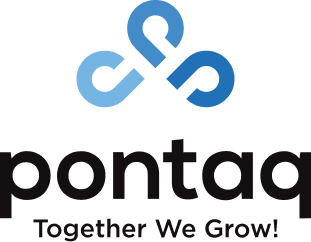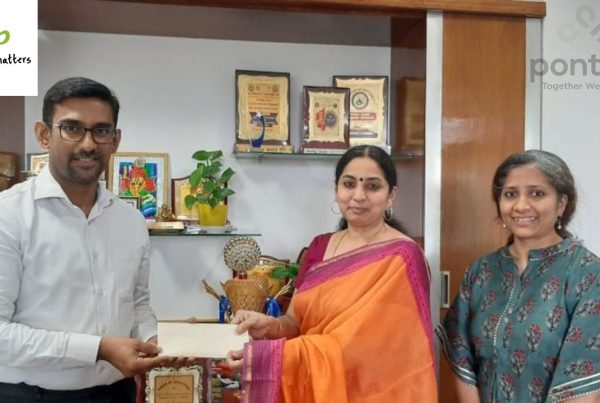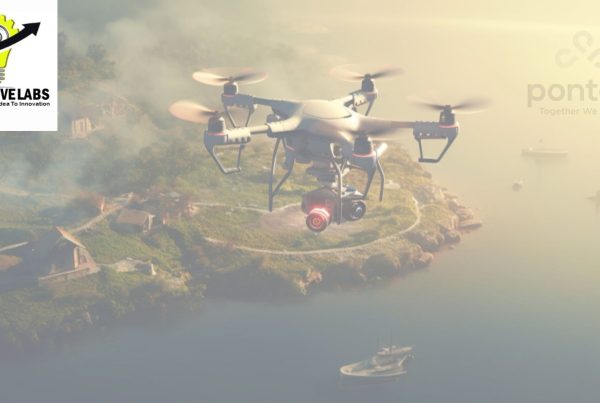Sonali Weljali and Tukaram Sonawane’s innovative product ‘electric bull’ helps in inter-cultivation of agricultural crops.
With more than 1.4 billion population to feed, India is one of the countries where farm mechanisation is as low as 45 per cent as compared to other countries like the US where it is 95 per cent. Farm mechanisation is far more complex in India due to the diversity in rural landscape and agricultural practices, and hence most of the innovation and mechanisation has been “technological” and “corporate-driven” rather than understanding the practical needs of farmers.
One such gap, identified by the husband-wife entrepreneur duo Sonali Weljali and Tukaram Sonawane, was lack of equipment for inter-cultivation in farms. The duo founded “Krishigati” startup in 2021 to make farming easier, less expensive, and more rewarding for small-scale farmers with their product called the “electric bull” or AgriEV alpha which is an “axle-less” battery powered vehicle. It can be used for all kinds of inter-cultivating operations like weeding, earthing up, spraying and precision sowing.
Lockdown lessons
Sonali and Tukaram are mechanical engineers belonging to farmer family and settled in Pimpri-Chinchwad near Pune. Tukaram has mentored about 2,000 startups as coach, while Sonali was working in a multinational company manufacturing agricultural machinery. During the first Covid lockdown, they worked from home, but decided to go to their hometown Andarsul, in Yeola tehsil of Nashik, for a change, when the second lockdown was implemented.
“Being farmers and watched farming closely since childhood, we both realised that agricultural practices have not changed much. Tractors, spraying pumps, tillers, and other modern equipment were being by farmers but they were not necessarily convenient and ergonomic to use. Despite mechanised solutions available, farmers had no choice for inter-cultivation of food grain crops and it was still carried out in a traditional way,” Sonali said.
“We decided to interact with farmers about their problems. Even though lockdown was in place, farmers used to meet every day at their farms. After discussion with more than hundred farmers, we realised that they had problems and solutions too, but those were limited to their own farms and unscalable for implementation. Since we had farming as well as technical knowledge, we thought we can design and develop a product which will solve critical issues faced by farmers. especially in the inter-cultivation of crops.
Labour and draft animal shortage
Inter-cultivation activities were traditionally carried out by farm labourers or draft animals. Tractors or other equipment are not suitable to be used in these operations as they may damage the crops in the field.
Highlighting some disturbing trends in agricultural practices in rural India, Sonali said, “Inter-cultivation activities need to be done in a certain timeframe or else unseasonal rain or harsh weather conditions can ruin crops and result in loss for farmers. The unfortunate reality in rural regions is that nobody wants to work in harsh conditions at the farm and hence labour is difficult to source. Rich farmers, large landholder can afford such labour by paying more, but smallholders cannot. If we look at draft animals, cows are being preferred as they also become an additional source of income derived from milk and dairy products. Bulls, on the other hand, are costlier to maintain and there is a trend to train them for racing activities rather than agricultural practices. If we compare, cows outnumber bulls by over three to one.”
Why inter-cultivation?
Inter-cultivation means activities which are carried out after sowing of crops. Typically, inter-cultivation includes three activities – thinning and gap filling, weeding, hoeing, and earthing up.
Sonali said, “The grain filling period is important in food grain crops like wheat, jowar (sorghum) and bajra (pearl millet). For example, in October, excessive heat and unseasonal rains can affect the crops. Traditionally, farmers used to apply additional soil on the roots of the crop thereby creating a valley between the rows. Rain water would flow through this ‘valley’ and moisture content of the soil protected the crop from excessive heat. This simple practice of farmers can improve the production and quality of crops by 20 to 30 per cent. But nowadays, this practice is not being followed resulting in damaged crops and production losses.”
“Mechanisation solutions are available in abundance in the harvesting stage, but not in inter-cultivation stage. Only draft animals and human labour could do it. While designing our product, we had to take all these factors in consideration and come up with a product which is not only technologically superior but ‘local’ in look and ergonomic to use. For example, we had an option of using high-quality grinding machine blades, but we went for ‘blacksmith’ blades to give a local touch to our product. Due to these ‘hybrid’ features, we could build a cost-effective and more productive machine,” Sonali said.
Prototype
Krishigati was formally incorporated in 2021. The initial product design and prototyping involved a lot of trials and error and took nearly six months. Sonali said, “Initially, we had designed the machine to be operated on diesel engine. However, some of our mentors, including IV Rao, former executive advisor and R&D head at Maruti Suzuki India; and Rashmi Urdhwareshe, former director at Automotive Research Association of India (ARAI) advised us to make it battery-operated (EV) considering future requirements. The prototype was completed in next six months and final product cost us around ₹7 lakh.”
“We have spoken in person as well as over phone to more than 4,000 farmers till date. They feel we can solve their problems and have very high hope from us. Mechanisation that has happened over years has been driven by highly qualified engineers, but there is a gap between actual requirements of farmers and the products they receive. Farmers adapted to the new machines, but their requirements were not fully met. So, while designing the machine we took this aspect into consideration. We developed the axle-less technology for which we have also received a patent in just 13 months. Axle was the major barrier in inter-cultivation operations as we could take the machine inside crop lanes in farms only if the axle was absent. Furthermore, we are now aiming to power our battery-operated vehicle through renewable energy sources like solar power,” Sonali said.
Customisation
Sonali said, “While designing the product we have also considered the international market requirements. Within India too, there is a lot of land and crop field diversity from Jammu and Kashmir to northeastern states. Farmers can convey their specific requirements and we will offer customised solutions to them. We have a strong team of 15 members, including the research and development team, to provide such unique solutions.”
Dealer network
Sonali and Tukaram set up their first 2,500 square feet-sized plant in Alandi MIDC (Maharashtra Industrial Development Corporation) area. The first batch was manufactured recently and three machines were delivered to farmers from nearby village areas.
“We are appointing dealers and distributors across India starting with Maharashtra. They have been appointed at Akola in Vidarbha and Aurangabad and Beed in Marathwada region. Our next focus is Nashik district. Rajasthan government has placed an order for 1,000 machines for a single village. We have obtained consent letter for 200 machines from the government and are in discussion with investors to meet the demand. We will set up a bigger plant soon,” Sonali said.
Government grants
Krishigati is a bootstrapped startup with Sonali and Tukaram putting in around ₹20 lakh. Tukaram was aware of different government schemes, grants and challenges where they applied and emerged winners.
“One of such challenges was organised by STPI-COE (Software Technology Parks of India-Centre of Entrepreneurship) ‘Motion’ in Bhosari where Krishigati was shortlisted. It was meant for electric mobility (on road vehicles) startups, but they gave us an opportunity considering our battery-operated vehicle for agriculture,” said Tukaram.
Kisan Sammelan
Krishigati participated in the Kisan Sammelan organised on October 17 and 18 in which 300 startups were shortlisted from 3,000 applicants. Further, only 25 startups were shortlisted for the startup conclave visited by Prime Minister Narendra Modi.
Sharing her experience with the prime minister, Sonali said, “The interaction was a good opportunity for us and we will never forget it. The questions PM Modi asked were relevant which only an informed person could put to us. He also wanted to drive the machine and asked his security personnel to make necessary arrangements. While they were doing it, he asked whether women can operate the machine and hence I demonstrated it myself.”
Future plans
Krishigati team is planning to increase its monthly production capacity 10x. “Farmers can rent the machine from farmers’ producer organisations (FPOs) and farmers’ producer companies (FPCs) on hourly charges basis. Besides India, we are also targeting Nepal, Bangladesh, Bhutan, the US, and the UK markets. We will be launching sub-variants of the existing product within a year. Also, we have set a target of achieving 500 units production per month.”
Source Article: https://www.hindustantimes.com/cities/pune-news/startup-mantra-farming-made-easy-and-reap-benefits-101670083326859.html





